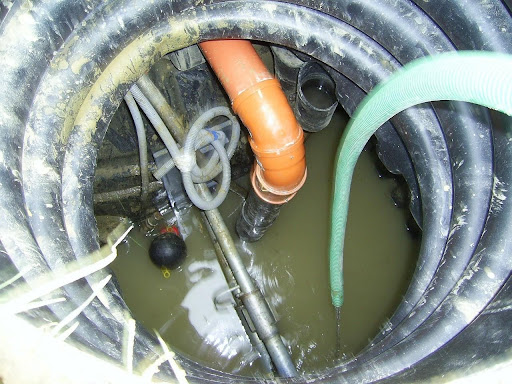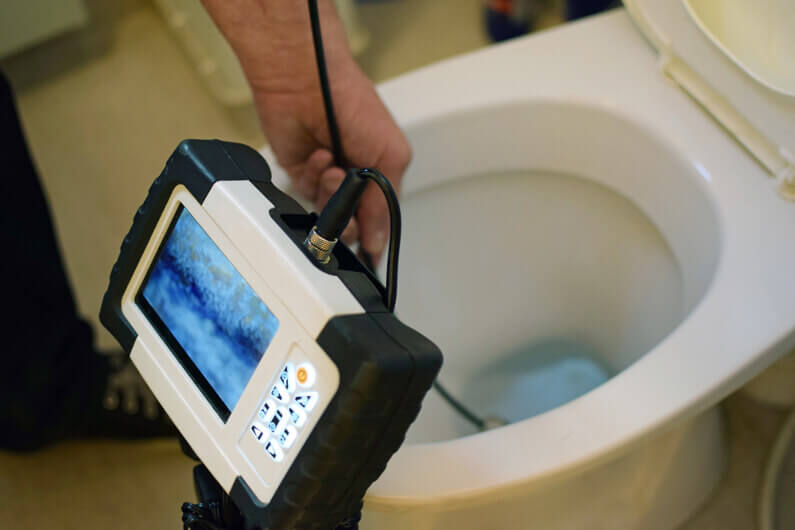How to Handle a Blocked Drain Before Reaching out to Expert Help
How to Handle a Blocked Drain Before Reaching out to Expert Help
Blog Article
We've come across this great article pertaining to Tips for Dealing with Clogged Drains and Sewer Lines down the page on the net and concluded it made sense to write about it with you over here.

Introduction
Dealing with an obstructed drain can be an irritating experience, disrupting day-to-day activities and possibly creating damages to your property. However, prior to reaching out to pipes experts, there are actions you can require to deal with the concern yourself. In this overview, we'll discover do it yourself options and safety nets to deal with an obstructed drain successfully.
Recognizing the Issue
The very first step in resolving an obstructed drain is recognizing the indications. Slow drainage, gurgling sounds, foul odors emanating from drains pipes, or water support up prevail indications of a blocked drain. Determining these indicators early can aid prevent better issues.
Selecting the Right Pipes Service
When choosing a plumbing solution, consider variables such as experience, licensing, and consumer reviews. Choose a respectable plumbing technician with a record of quality handiwork and transparent rates methods.
Expense Factors to consider
The cost of expert drainpipe cleaning company can vary depending upon the intensity of the clog and the plumber's prices. Demand quotes from multiple providers and ask about any kind of additional charges to make certain transparency and stay clear of surprises.
Safety Precautions
When trying DIY drainpipe cleaning, focus on safety. Put on safety gloves and eyewear to avoid contact with damaging chemicals or germs. Never ever blend different drainpipe cleansing items, as this can create dangerous fumes.
Case Researches
Real-life examples show the performance of do it yourself options and the importance of prompt professional intervention in dealing with drain blockages.
Typical Root Causes Of Obstructed Drains
Recognizing the elements that add to drain pipes blockages is vital for efficient resolution. Typical wrongdoers include hair, soap scum, grease, food particles, and international items like hygienic products or paper towels. Tree roots getting into below ground pipelines can also cause substantial blockages.
Do it yourself Solutions
For small blockages, a number of DIY options can be effective. Pouring boiling thin down the drain can help dissolve grease and debris. Baking soda and vinegar or a mix of salt and cooking soft drink can work as all-natural cleaners. Using a plunger or plumbing serpent to displace obstructions is another choice.
Tools and Devices
Having the right devices handy can make DIY drainpipe cleaning up much more effective. A plunger is a flexible device for removing obstructions in sinks, toilets, and showers. A plumbing snake or auger can get to deeper blockages, while drainpipe cleaning chemicals can be utilized meticulously for stubborn blockages.
Safety nets
To prevent future obstructions, adopting preventive measures is important. Mount drain guards or filters to catch hair and debris prior to they get in the pipes. Routinely flush drains with warm water to liquify grease accumulation, and avoid getting rid of grease or strong waste down the tubes.
When to Call an Expert
While do it yourself services can fix minor clogs, specific indicators show the requirement for expert assistance. Consistent obstructions, foul odors despite cleaning up efforts, or multiple drains pipes supporting all at once are warnings that call for experienced treatment.
Verdict
By adhering to the suggestions detailed in this guide, you can effectively tackle blocked drains and avoid future plumbing issues. Whether choosing DIY solutions or seeking professional assistance, prompt activity is vital to maintaining a healthy plumbing system and preserving the stability of your home.
How to Clear a Clogged Drain Yourself (And When to Call In the Professionals)
What Can Clog a Drain
Dirt Skin flakes Hair Grease Soap scum Food Offset pipes Tree roots Small objects Mineral buildup DIY Tricks to Unclog a Drain
You can fix this! Once you have identified the source of the clog (or have a vague idea), you can try one or a combination of these fixes in order to clear your plumbing.
Wire Hanger or Snake
Untangle and clear out hair from a drainpipe with a homemade snake. Use a straightened-out wire hanger with a 90-degree angle hook to locate the clog and drag out any unwanted material.
Remember not to push the clog further down to where the wire hanger cannot reach! If you need to follow up with a plunger, give it a try. Your efforts might be more successful after it’s been wire-snaked.
If you want to get fancy and don’t have a wire hanger to spare, head to the store and pick up a hand-operated drain snake. You can get one for $10-$30. It may save you the hassle, and provide additional length to reach deep into the clogged pipe.
Plunger
A cup plunger has a suction cup attached to a wooden handle. The rubber creates a seal around the drain, and increases the pressure force of the plunger.
Plunge for 30-second increments to loosen the clog. This may need to be repeated over the course of 15-20 minutes. Once plunged, run the water to flush the remaining material out of the drain.
Remember– never use a plunger if you have used a chemical drain cleaner. These chemicals can splash up from the force of the plunger and cause serious injury or burns.
Boiling Water
Hot water can sometimes break up materials into a flushable amount. Dirt, grease, and soap buildup requires heat in order to unstick from surfaces.
Take your kitchen kettle and heat your water to a boil. Once it reaches a rolling boil, pour it directly down the drain into the blockage. Carefully follow with plunging, if necessary.
Don’t worry if this takes more than one try! It can often take multiple kettles and repeated plunging in order to clear a particularly stubborn clog.
Chemical Drain Cleaner
As a last resort, pick up a bottle of chemical drain cleaner. Drain-cleaning chemicals are potent, and not very good for the environment.
You may need to wear protective eyewear in gloves before handling your bottle of chemical drain cleaner. Follow the instructions printed on the bottle, and flush with water as soon as the instructions allow. Do not follow with plunging.
Baking Soda and Vinegar
As a safer alternative to chemical drain cleaner, baking soda and vinegar can create a chemical reaction that clears tough clogs.
Combine one cup of cleaning vinegar with one cup of boiling water, and set aside. Once you have done this, pour half a cup of baking soda down the drain. Give the baking thirty seconds to settle and cover a large portion of the problem drain.
Following the baking soda, pour down your vinegar and hot water solution. Once the vinegar and baking soda combine, the mixture will bubble and fix. Let this reaction fizzle in the drain for about an hour.
After an hour, follow with a kettle’s worth of hot water. The heat and liquid should flush out any remaining material.
When to Call a Plumber
If your DIY attempts haven’t cleared your clog drain, it’s time to call in a professional. It’s not worth losing access to your kitchen sink or high-traffic bathroom. A clog in a vital area can keep you from the things you’d rather be doing, and derail your routine.
Anytime a clog is causing water to spread is a time to call in a plumbing service. What starts out as a little bit of water can quickly grow into serious, expensive water damage.
Additionally, a serious clog can result in burst pipes or serious leaks. Make sure you know when to take it seriously!
https://myguysnow.com/how-to-clear-a-clogged-drain-yourself-and-when-to-call-in-the-professionals/

I discovered that entry on Tips for Dealing with Clogged Drains and Sewer Lines when doing a lookup on the internet. Liked our article? Please quickly share it. Help another person find it. I thank you for your readership.
Set Up An Appointment Report this page